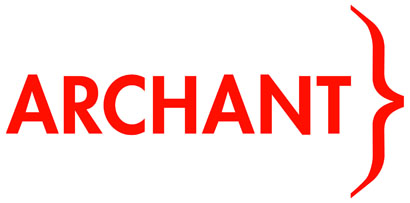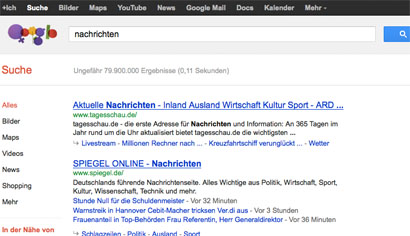 Journalisted is an independent, not-for-profit website built to make it easier for you, the public, to find out more about journalists and what they write about. It is run by the Media Standards Trust, a registered charity set up to foster high standards in news on behalf of the public, and funded by donations from charitable foundations. Each week Journalisted produces a summary of the most covered news stories, most active journalists and those topics falling off the news agenda, using its database of UK journalists and news sources.
Journalisted is an independent, not-for-profit website built to make it easier for you, the public, to find out more about journalists and what they write about. It is run by the Media Standards Trust, a registered charity set up to foster high standards in news on behalf of the public, and funded by donations from charitable foundations. Each week Journalisted produces a summary of the most covered news stories, most active journalists and those topics falling off the news agenda, using its database of UK journalists and news sources.
Mitt Romney, Lib Dems and Prince Harry
for the week ending Sunday 11 March
- Mitt Romney inches towards the Republican presidential nomination
- LibDem debates about tax, Prince Harry in the Caribbean, and the issue of same sex marriage covered lots
- An al-Quaeda linked terror attack in Yemen, Spain’s deficit difficulties, and Sarkozy’s lurch to the right, covered little
Covered Lots
- Mitt Romney inched towards the Republican presidential nomination with 6 victories in 10 states on Super Tuesday, 165 articles
- The Liberal Democrats got embroiled in internal debates about tax – particularly around their proposal for a Mansion Tax – at the Lib Dems spring conference, 147 articles
- The issue of gay marriage became controversial – again – after the intervention of Cardinal O’Brien, 125 articles
- Prince Harry charmed the citizens of Belize, Brazil, the Bahamas and Jamaica on the Diamond Jubilee Tour, 120 articles
Covered Little
- Yemen militants, who have links with al-Qaeda, attack Government troops, 185 dead, 12 articles
- Spain’s new Prime Minister, Mariano Rajoy, gets in a fight with Brussels as he seeks to stop Spain becoming the next Greece, 12 articles
- Nicholas Sarkozy threatened to pull out of the Schengen zone in an attempt to woo right wing voters prior to the French election, 6 articles
Political ups and downs (top ten by number of articles)
- David Cameron, 582 articles (+19% on last week)
- George Osborne, 250 articles (+21% on last week)
- Nick Clegg, 230 articles (+39% on last week)
- Vince Cable, 182 articles (+174% on last week)
- Ed Miliband, 99 articles (-29% on last week)
- Tony Blair, 91 articles (+36% on last week)
- Boris Johnson, 70 articles (-37% on last week)
- Gordon Brown, 70 articles (+25% on last week)
- Ken Clarke OR Kenneth Clarke, 70 articles (+133% on last week)
- Theresa May, 66 articles (-1% on last week)
Celebrity vs Serious
- Rihanna takes a picture of her new hair while semi-naked, and other mischief, 67 articles vs. Ken Clarke reacts to concerns that plans to extend secret courts could threaten open justice, 8 articles
- The All-American Katy Perry has a new boyfriend 36 articles vs. Steve Hilton – the Prime Minister’s resident ‘guru’ takes a sabbatical from government service to go to America, 30 articles
- Tulisa, the X-Factor judge, has a tan and a new boyfriend, 26 articles vs. in the Indian elections the ruling party suffered setbacks, damaging the prospects of Rahul Gandhi, 18 articles
Eurozone leaders (top ten by number of articles)
No other Eurozone leaders were mentioned in UK press coverage.
Who wrote a lot about… Syria
Long form journalism
- 4,662 words, ‘What’s Happening to me? Am I having a breakdown?’, Mark Rice-Oxley, The Times, 10th March
- 4,287 words, ‘Damien Hirst: I still believe art is more powerful than money’, Sean O’Hagan, The Observer, 11th March
- 4,180 words. ‘Fukushima: a strange kind of homecoming’, Mure Dickie, Financial Times, 9th March
Journalists who have updated their profile
Rob Davies is a city correspondent at the Daily Mail. After he achieved a 2.1 in his MA in English and German Literature, Rob went to the Cardiff Journalism School where he completed the Newspaper Journalism course. He was awarded the MHP Communications ’30 to watch’ award earlier this year. Follow him on twitter @ByRobDavies
Lennox Morrison is a freelance journalist who writes for the Guardian, Independent on Sunday, Wall Street Journal Europe, Metropolitan and the Reader’s Digest. She was an assistant editor for the Scottish Daily Mail as well as being a celebrity interviewer for the Scottish on Sunday. Lennox has also had three books published, Second Chance Tuesday (2004), Scottish Girls About Town (2003) and Re-inventing Tara (2002). Follow her on twitter @LENNOXinFRANCE
All information taken from journalisted profiles as updated (2012-03-13)
If you have a profile on journalisted you can now claim it and start adding articles, links and contact details
Do email team@journalisted.com if you spot any mistakes or have suggestions for other journalisted weekly analyses. You can also follow us on Twitter @journalisted
All Journalisted weekly newsletter statistics are calculated based on articles published on national news websites, BBC News online and Sky News online
The Media Standards Trust, which runs journalisted, won the ‘One to Watch’ category at the Prospect Think Tank Awards
Hacked Off is reporting live from the Leveson inquiry again this week via twitter @hackinginquiry and hackinginquiry.org
Visit the Media Standards Trust’s Churnalism.com – a public service for distinguishing journalism from churnalism
For the latest instalment of Tobias Grubbe, journalisted’s 18th century jobbing journalist, go to journalisted.com/tobias-grubbe








